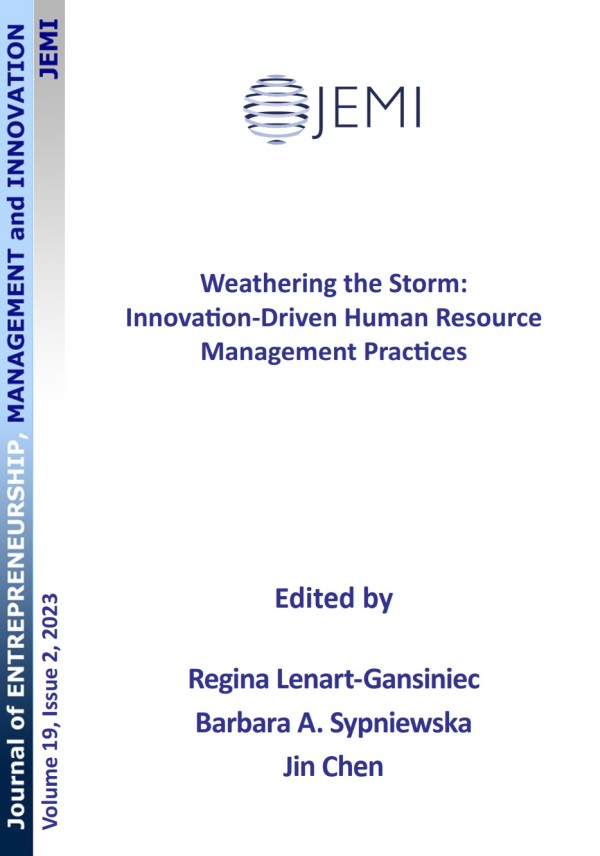Innovation-driven human resource management practices: A systematic review, integrative framework, and future research directions
Innovation-driven human resource management practices: A systematic review, integrative framework, and future research directions
Author(s): Regina Lenart-Gansiniec, Barbara A. Sypniewska, Jin ChenSubject(s): Social Sciences, Economy, Sociology, Socio-Economic Research
Published by: Fundacja Upowszechniająca Wiedzę i Naukę "Cognitione"
Keywords: human resources management; human resources management practices; innovation; innovation-driven; integrative framework; systematic literature review; thematic gaps; emerging research directions
Summary/Abstract: PURPOSE: It is increasingly emphasized that human resource management practices (HRMP), which refer to recruiting and selection, training and development, compensation and performance appraisal, are of great importance for creating innovation. However, the COVID-19 pandemic has shown that traditional HRMPs are already insufficient, which entails the need to rethink and reformulate them in the direction of more effective innovation while also allowing organizations to survive COVID-19-like crises. While there is an extensive literature on human resources management and innovation, there is still no consensus on innovation-driven HRMP. This study aims to identify and synthesize most significant and trustworthy research contributions of innovation-driven HRMP. In addition, to facilitate theory building in the field of HRMP, this article consolidates the existing knowledge into an integrative framework. This framework can be used by future researchers to identify gaps and ambiguities in the meaning of innovation-driven HRMP. METHODOLOGY: The article presents the results of a systematic literature review of 71 empirical research articles referring to innovation-driven HRMP from the Web of Science and Scopus databases. FINDINGS: The systematic literature review allowed us to identify innovation-driven HRMP, taking into account three levels of analysis: individual, group and organizational, with the latter level of analysis being dominant in previous publications. Recognition of innovation-driven HRMP, taking into account the levels in question, is included in an integrative framework, which is the theoretical basis for guiding future research. Our results confirmed the growing trend in the number of publications on the subject since 2010. Most researchers used a quantitative approach. Based on the first author’s affiliation, authors from Great Britain contributed the largest number of publications. Articles are published in various journals, but mainly in those on human resources management. The research took into account a variety of organizational contexts, predominantly in dynamic and complex industries. Our findings show that the current state of research on innovation-driven HRMP confirms the need for further research in this area. Based on this, we provided thematic gaps and potential questions for future research divided into three levels of innovation-driven HRMP. IMPLICATIONS: Our systematic literature review allowed us to propose implications for future researchers planning to conduct research in the field of innovation-driven HRMP. ORIGINALITY AND VALUE: Our systematic literature review focuses on identifying innovation-driven HRMP along with determining the current state of knowledge and future research directions in this area. In addition, we developed an integrative framework that aims at organizing existing literature but also at identifying promising future research directions into innovation-driven HRMP.
Journal: Journal of Entrepreneurship, Management and Innovation
- Issue Year: 19/2023
- Issue No: 2
- Page Range: 7-56
- Page Count: 49
- Language: English

